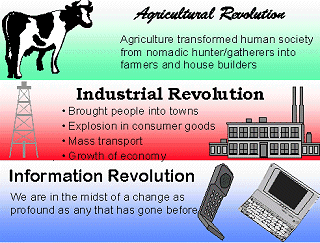Browse by Tag
- "Real" Innovation (2)
- Alignment (6)
- Business Innovation (9)
- Business Plan (2)
- Business Plans (1)
- Creativity (24)
- Critical Success Factors (4)
- Entrepreneurship (9)
- Global Competiveness (4)
- Human Side (11)
- India (1)
- Innovation (4)
- Innovation Consulting (18)
- Innovation Killers (3)
- Innovation Management (18)
- Innovation Tools (17)
- Innovation Training (24)
- Innovations (7)
- Inventions (16)
- IT Innovation (1)
- Leaders (5)
- Leadership (20)
- Leadership Development (13)
- Organizational Leadership (2)
- Organizational Strategy (20)
- Personal Values (6)
- Prediction (5)
- Strategic Innovation (38)
- strategic planning process (4)
- Strategy (3)
- Training (1)
- Vision (5)
- Weekly Dose (8)
Posts by Month
- 2014
- 2013
- 2012
- 2011
- 2010
- 2009
- 2008
- 2006
The 4 Principles Of Delusional Economics
When it comes to economic theories, there is plenty of fascination in the business world around how to explain what drives business and purchasing activities. Behavioural economics, the field of economics concerned with examining why people behave the way they do when it comes to their purchasing behaviour, is hot right now. Bestselling books like Freakonomics and Predictably Irrational dig deep into the psyche of people to try and explain seemingly illogical actions.

Here are the four key principles of Delusional Economics, and how you might avoid applying them to your own small business:
1. Change a customer’s worldview
2. Getting people to pay for something that is currently free
3. Basing a business model on revenue from nonexistent advertisers or customers
4. Overestimating a customer’s ability to appreciate value worth paying a premium for
Source: OPEN Forum
How are Innovation, Creativity, Engagement, Personal and Human Values linked?
1) Innovation arises from creativity.
2) Creativity is shaped by individual's engagement.
3) Engagement and commitment to one's work is directly linked to clarity of Personal Values and the Organizational Values of an institution one works for.
Personal Values are molded based on one's Spiritual Integrity (alignment of thoughts, words, and actions). Spiritual Integrity is the expression of one's deep self-awareness of their inherent Human Values within. Human Values are the same in all human beings. One's ability to unearth the Human Values distinguishes one's moral compass vs. that of another - sometime called Character.

Therefore, if an organization wants to create a climate and culture innovation, best possible lasting solution is to help every employee and leader become more self-aware of who they are and what their personal values are. And I don't mean definition of personal values but the expression of those values; i.e. how do those values show up in their work? Their projects? Their email communications, etc.? This will allow everyone to 'tap into' the inner source where ideas to grow the business are sitting dormant.
Great Innovation Leaders figured this out long time ago - i.e. innovation arises from one's (or team's)deep passion for something much bigger then themselves.
-Jatin
Role of Innovation for Individuals and Organizations- Part 1
Jatin DeSai, CEO of the DeSai Group recently answered 5 thought-provoking questions on the role of innovation for individuals and organizations. The answers to these questions will stimulate your understanding of Innovation and its positive impact on you personally and professionally.
The first question and answer is posted below.The remaining four Q & A's will be posted over the week...
Q&A on Role of Innovation for Individuals and Organizations
By: Mr. Jatin DeSai, CEO, The DeSai Group
“Innovation Execution” Consulting Firm
Q1: What is the game of innovation? Is innovation a game?
Answer: "Yes, innovation is a game. It is a game because it requires knowledge and skills to compete and win in the ever changing markets. Innovation is a game that every business today needs to play today to avoid becoming useless or even extinct.
Also part of the game of innovation is global competition, the energy crises, economic system failure, poverty, population expansion, and many other mega trends that are here to stay. All of these are converging upon every business sector simultaneously. They are like huge rivers all merging in to one. The turbulence, the waves, and the force created by these mega trends have never been seen by humanity before.
That is why running a business the ‘same old way’ will only guarantee that its management will end up on a commodity island – where everything is price competitive and customers don’t see much difference between that business and the competition. From my perspective as an innovation consultant, I believe that every business must figure out a way to meet every challenge directly or indirectly, with a focus on winning the game of innovation. This means, businesses must learn to experiment, fail, learn from failure, and try something else – until they develop new business acumen skills to sustain and grow.

The rules of the innovation game have also changed - primarily due to two “major” forces: the information revolution and globalization. There is plenty of evidence that shows how these two major trends are shifting consumer buying patterns, local and regional economies, access to education, environmental issues, and the pace of life for every human being. This has created more urgent need to invent new ways of doing business – faster then ever before. Average life span of a company is shortening and more businesses are failing faster due to these two major trends.
Innovation comes from the act of being creative. Creativity comes from people. So, to play this game correctly and compete in this new age, CEO’s must find a way to tap in to the hearts and minds of employees, customers, suppliers, and partners. Our latest research shows that the most critical new competencies that must be developed and managed in your company culture will be: discovery, creativity, influence, implementation, and mindful action. These skills cannot be outsourced and will play more a important role when creating and keeping customers for life."
Feel free to comment and express your thoughts on this blog..
Thanks,
Jatin DeSai
Forget "Creativity",embrace "Creativeness" A strategy for the future!
Today's managers and leaders think of "creativity" rather than"creativeness". Our corporate culture has trained us to immediately think of results rather than seeking to be the kind of people who achieve them, which is little like putting the cart before the horse. We, too often, look for something which can be measured and therefore controlled. We use the word "Creativity" with the underlying intent that it can be a measurable quantity, whereas creativeness is not. It is a quality of the person.
Creativeness is something entirely natural, like the budding of a plant from a seed. Because it is natural, it cannot be forced to produce, commanded or demanded.
There are no recipes for creativeness. It happens in one's presence at the spur of a moment.
For organizations to compete for the critical "talent war" ahead of us, they must rethink cultivating creativity, but more importantly creating an environment for people to naturally bring out their latent creativeness -which exists in all human beings. Organizations who figure out how to do that will be able to attract and retain the best talent.
So how can one develop this competency of "creativeness" in day-to-day work?
Develop greater awareness of situations and problems, viewing them with bare attention. In this way they will be seen with clarity.
- Look at situations with sincerity and detachment (very hard to do). This means recognizing and admitting to yourself your own involvement.
- When you have observed the problem in this way, do not put it on one side, but bear it in mind for however long is necessary. Don't force to seek the solution- let it come to you.
- Take care to notice the intuitive signals, whatever these happen to be in your case. Eventually a solution will occur to you - anytime, anywhere.
- Look at the solution you have discovered with clear comprehension of purpose and suitability. Not all intuitive and creative ideas you get are necessarily right or practical.
- Validate its value if it was realized, shop it around, lens it from varieties of perspectives - customers, peers, leaders, suppliers, markets, etc.
- Finally, act on it. Ideas and solutions are of no use, if they are only confined to private realities.
Thanks,
-Jatin
Recommended books on creativity (accessible online):
- Handbook of creativity - Robert J. Sternberg
- Cracking Creativity: The secrets of Creative Genius - Michael Michalko
- Creativity: Unleashing the forces within - Osho
The answer is LOVE!
Recently, I was asked: "What is the chief quality that we have lost as human beings today? What qualities do we NOT have in abundance right now, that we truly, desperately NEED right now to excel as a species?
It was asked because the person was very concerned about employees, their engagement, and their growing stress levels.
The history of ‘work places' for the past 100+ years has plenty of examples of a disengaged workforce. So, this feeling of uncertainty and fear, is not new. The intensity at which this has happened is alarming.
In my observation, the only ‘chief quality' we are deprived of, and is the ONLY thing humanity lacks - is the poverty of Love.

To Love, without attachments, To Love, others without selfish motives, To Love with care, To Love others as our own brothers and sisters , To Love the divine spark in all living things - especially human beings, irrespective of their past actions, language, color, or faith.
This will occur someday. How? In my strong belief, it has to. We as humans are a form of Love. It is our nature to Love and be Loved. Once each one of us realize who we truly are and discover our inherent divinity as Love, we WILL change ourselves and therefore the world will be changed - one person at a time.
Another way to look at this is to accept that nothing is lacking. Everything is perfect. What we have is what needs to be had - for each one of us. It is what we need right now to help us evolve our own consciousness. We have what we deserve. What we have, good or bad, is result of what we did in the past - the law of Karma. Some of us are only evolved to chase money and materialistic comforts. Some of us are ready to challenge every system around us to make it better, some of us are ‘designed' to win and beat the competition, some of us can only ‘see' the wrong in the world and nothing good. Through all such experiences, each one of us will have to learn the ultimate lesson (someday) that the external world (vs. the inner world), has nothing permanent to offer to us - to make us happy or find peace and bliss. We will have to, someday, accept that such virtues only lie in the depth of our very own heart and soul - not outside in the physical world. That might take a few lifetimes,if not few hundred life times for some of us.
After such a long journey, someday, each one of us will arrive to the conclusion that nothing is lacking, and everything is perfect - for each person, each society, each government, and each world. For each, what they have now, is what is needed for them to evolve to the next stage in their consciousness towards permanent peace - enlightenment, heaven, Moksha, etc.
For more information on this wonderful virture:
- Click here for the health benefits of Love
- Click here for reading about how loving your employees makes good business sense
Recommended books:
- The Six Secrets of Change which includes 'Loving your employees' as a key secret for success.
- Leadership and the Force of Love - Six keys to Motivating with Love
Best wishes,
-Jatin
Six Criteria for Innovation Success
In our work at The DeSai Group, we have observed that an organization can achieve sustainable growth through innovation by:
- Having a clear strategic intent – a unique direction for the company that will generate a specific value (Top-Line, Bottom Line, or Other).
- Value creation strategy – Depending on the value target, creating a vertical and horizontal organizational alignment for everyone to see themselves in the vision and mission is essential for future returns.
- Developing deep insights – commercially savvy perceptions to help develop great ideas that can be ventured profitably. Without insights, organizations will predictably migrate to Commodity Island with other industry laggards.
- Mobilizing strategically with discipline – vision, strategy, leadership, and ideas are all required for growth, but they don’t guarantee success until you execute with discipline.
- Having high performing innovators – innovation can occur by having innovators who can generate real wealth and not just come up with great ideas. People who over-utilize resources and under-deliver value, cannot be called real innovators.
- Selecting top-talent with optimum financial behaviors - or developing talent by creating self-awareness about what specific corrective actions executives can take to develop optimal behaviors.
As I have said before, organizations MUST begin to take innovation as a serious tool for survival.
Innovation is no longer a choice - should we or should we not. It is only about WHEN you choose to commit to it.

